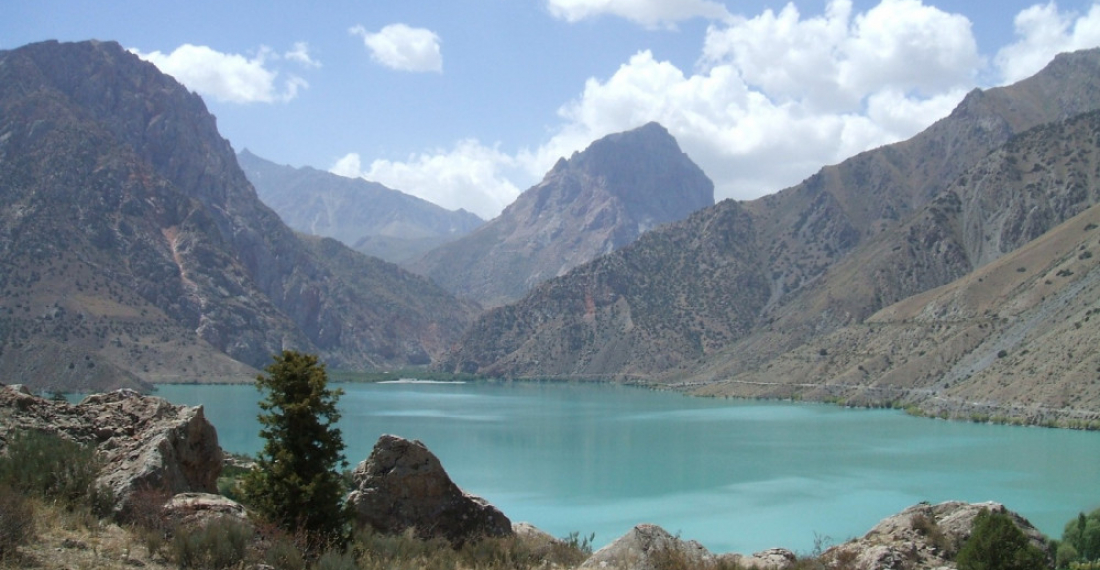At a promotion forum in Brussels this week senior Tajik officials emphasised that their country was business friendly and tourist welcoming. Young and eager Tajik entrepreneurs also highlighted that both country and society were ready for qualitative step-change in relations with Europe. On its part the EU has signalled it is ready to increase co-operation with the strategically located country, including through enhanced partnership agreements.
On Wednesday, 18 May, Brussels hosted the forum “Investing in Tajikistan while exploring Tajikistan”. It was an opportunity for the strategically located Central Asian republic to showcase some of its natural beauty and business potential. Whilst the forum lacked some of the glitz sometimes associated with similar events in the European capital, European participants were impressed by the enthusiasm and energy of the Tajik officials and entrepreneurs who flew over for the event, and others who joined on line from the capital, Dushambe.
Central Asia is often seen as distant and isolated. This is not all about geography. As part of the Soviet Union, the Central Asian republics were hardly visible on the world stage. Since independence in 1991 their diplomatic footprint increased, but the region remains practically untouched by tourism, and except for the energy sector in Kazakhstan, European investment in the region has been sluggish. But this seems to be changing.
The EU has recently shown an increased interest in the region, and as the Forum in Brussels showed, in Tajikistan the interest is mutual. Often described as the poorest of the five Central Asian republics, Tajikistan, with a population of around ten million people, still relies on remittances from its workers in Russia to keep its economy going. But the Tajik government wants to change that. The State Committee on Investment and State Property Management is leading the process, not least by attracting more foreign investment. Mining, Water resources and hydro power, Agriculture, Construction materials, and Tourism. are some of the sectors considered ripe for foreign investment. Tajikistan has also established a number of free economic zones with a simplified tax regime to help kick start industrialisation.
These is no doubt that the natural beauty of Tajikistan can be a big attraction for tourists. However reaching the country is still something of a challenge since there are only few international flights, but the government has now extended visa free travel for many European countries passport holders, and European travel operators report an increased interest in Tajikistan by travellers seeking exotic and untapped destinations.
Tajikistan’s location is very strategic. It is sandwiched between Afghanistan and China and has to manage relations with both very carefully. To the north are the borders with Uzbekistan and Kyrgyzstan. The Tajik-Kyrghyz border has been tense in recent weeks with incidents reported. But Tajikistan’s big headache at the moment is Afghanistan, and the recently re-installed Taliban government in Kabul, and the risk of a resurgence in Islamist militancy. The Tajik minority in Afghanistan has in the past been one of the main opponents of the Taliban, and this makes relations between the two countries at this point increasingly difficult.
However, linguistically and ethnically the Tajik are closest to Iran, even though the countries do not have a common border. Relations are good, but Tajik officials quickly remind anyone who cares to listen that Tajikistan is a secular republic.
After the dissolution of the USSR Tajikistan remained closely aligned with Russia and is today one of the members of the Collective Security Treaty Organisation (CSTO), as well as the CIS. But there is a clear wish in Dushambe, distinctly more so among the young generation, to break out of the geographic and political constraints that many see as having been a hindrance to the country’s development. Good relations with the EU are therefore now a priority. On its part the European Union appears to be ready to engage. Speaking at this week’s forum in Brussels, EU Special Representative for Central Asia, Ambassador Terhi Hakala emphasised the EU’s willingness to increase its engagement with Tajikistan, including through upgrading of existing partnership and framework agreements.







